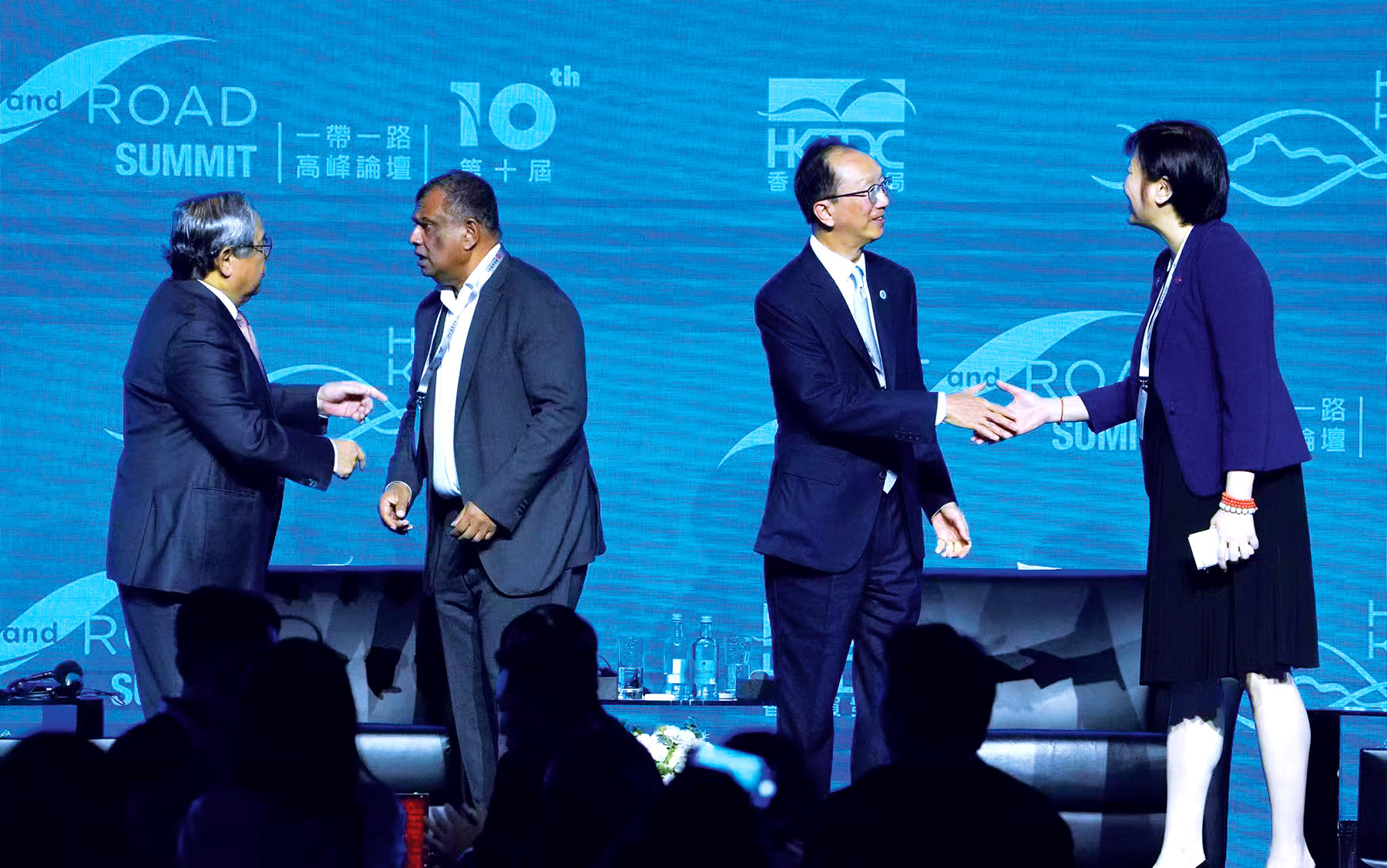
International companies seeking global expansion are paying more attention to emerging opportunities within the Association of Southeast Asian Nations, especially as the Belt and Road Initiative continues to drive regional growth and deepen China-ASEAN cooperation.
Panelists shared the insights during the session “ASEAN: Unveiling New Opportunities for Growth and Collaboration” at the 10th Belt and Road Summit on Wednesday.
They discussed growth areas including healthcare and technology for an aging population, climate change adaptation, green finance, and enhanced connectivity between ASEAN and Africa.
READ MORE: 9 MoUs, 36 deals worth $1b signed as HK’s Belt and Road Summit begins
Tony Fernandes, CEO of investment holding firm Capital A, likened ASEAN’s integration to that of the European Union, saying ASEAN “has grown more into an economic union”, becoming more stable and peaceful, and it is now “easier to move around and easier to trade with” the region.
“For the last two years, I’ve been seeing leaders of ASEAN really get on with each other, and I think because of geopolitics, they see it as important to break down the barriers that existed, allow commonality. It’s the best time to look at ASEAN. You’re looking at a 700 million people market (and a) $4 trillion economy,” Fernandes told the panel.
He referenced Malaysia’s budget airline AirAsia, describing it as “an ASEAN company”. He expects that travelers between China and Southeast Asia will account for 15 percent of the airline’s projected 90 million passengers in 2025. “Providing connectivity has really enabled much more commerce, tourism and logistics going forward,” he said.
He added that Capital A is inspired by China’s digital economy to make its own fintech solutions modeled after Alipay, developed by mainland tech giant Alibaba Group.
Antony Leung Kam-chung, group chairman of Nan Fung Group and a former Hong Kong financial secretary, said, “We are living in a volatile, uncertain, complex and ambiguous world.” He cited shifting geopolitics, technological development, demographic changes, and climate challenges as main factors behind the growing uncertainties.
“We are moving from a unipolar world to a multipolar world. And to a certain extent, because of the recent moves by the US government, it is prompting the rest of the world to rethink connectivity instead of just focusing on the US and the West,” he said.
He highlighted the transformative potential of artificial intelligence, which he believes will accelerate not only trade in goods and services, but also digital exchanges.
Leung also pointed to opportunities in healthcare, driven by aging populations, and in sustainability, as countries face increasing extreme weather events and seek innovative financing solutions.
Highlighting Hong Kong’s “useful role” in navigating these changes, Leung said the city’s unique advantage relies on the “one country, two systems” framework, as well as its status as a wealth management center, and as a “talent hub” — home to five universities ranked among the world’s top 100.
ALSO READ: Hong Kong praised for forging connections with Belt and Road countries
Zeng Qi, vice-president of CITIC Group Corp, said the State-owned investment company operates in nine of the 10 ASEAN countries, managing $40 billion in assets, thanks to China’s opening-up efforts.
Zeng said the company focuses on supporting ASEAN countries in infrastructure projects like railways, roads and industrial parks, as well as environmental technology and water management. The company also funds research to better understand how geographical factors affect business.
“We’re not only enabling development of ASEAN but our international footprint is expanding. We hope through collaboration, Chinese companies will enjoy further development in ASEAN,” she added.
Contact the writer at jan@chinadailyapac.com


